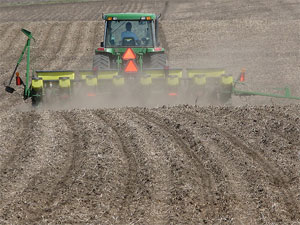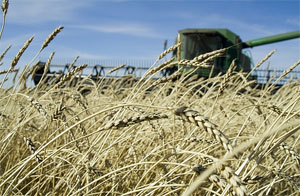Crop Farmer
Tasks & duties

Crop farmers may do some or all of the following:
-
decide what crops will be grown, and develop a planting schedule
-
prepare land for planting, using tractors and cultivators
-
plant seeds
-
ensure crops are well watered and fertilised, and are free of weeds, disease, and contaminants
-
shift irrigation systems
-
test the pH (acidity and alkaline) levels of the soil to plan for fertiliser use
-
comply with spray and environmental regulations
-
harvest crops and arrange for their sale
-
keep farming, production and financial records
-
train and supervise farm workers
-
buy seed, fertiliser, machinery and other farm materials
-
check, clean, and maintain equipment
-
transport grain to silos (storage towers)
-
burn or bale (gather and compress into bundles) the stubble (the straw left behind after harvesting)
-
farm animals or fatten livestock
-
keep up to date with markets and developments in the industry
Skills & knowledge

Crop farmers need to have:
-
ability to grow and harvest various types of crops
-
knowledge of crop diseases, weeds and pests, and how to control them
-
knowledge of climate and weather conditions
-
knowledge of soil and crop rotation, and cultivation and harvesting methods
-
knowledge of food safety, market certification, and quality requirements
-
skill using agricultural fertilisers and chemicals
-
skill driving combine harvesters and other farm vehicles
-
administration, computer, accounting and planning skills
-
general maintenance and basic mechanical skills
-
knowledge of health, safety, and employment regulations
-
people management and communication skills
Entry requirements
There are no specific entry requirements for becoming a crop farmer, but an agricultural qualification is recommended. A range of arable farming courses are offered through universities and the Agriculture Industry Training Organisation.
You can also train by doing an apprenticeship. Crop farmer apprenticeships are part of the Modern Apprenticeships scheme, which is for people aged 16 to 21.
A heavy vehicle driver's licence or fork-lift licence is useful.
Secondary education
Although there are no specific secondary educational requirements for becoming a crop farmer, three years of secondary schooling is preferred. Useful subjects include maths, and sciences such as biology and chemistry.
Training on the job
Most skills are learned on the job, including driving and operating farm machinery. Crop farmers may keep up to date with developments in the industry through research on the Internet. Courses and seminars on topics such as drying and storing crops, and the use of fungicides, are also available.
Useful Experience
Useful experience for crop farmers includes:
-
other types of farm work
-
driving specialist equipment or heavy vehicles
-
mechanical work
-
horticulture work
-
business management
-
working with harvesting contractors
Related courses
Agricultural Science
Agriculture
Farm Management and Agribusiness
Horticulture
For more information, please refer to Career Services.
Document Actions
